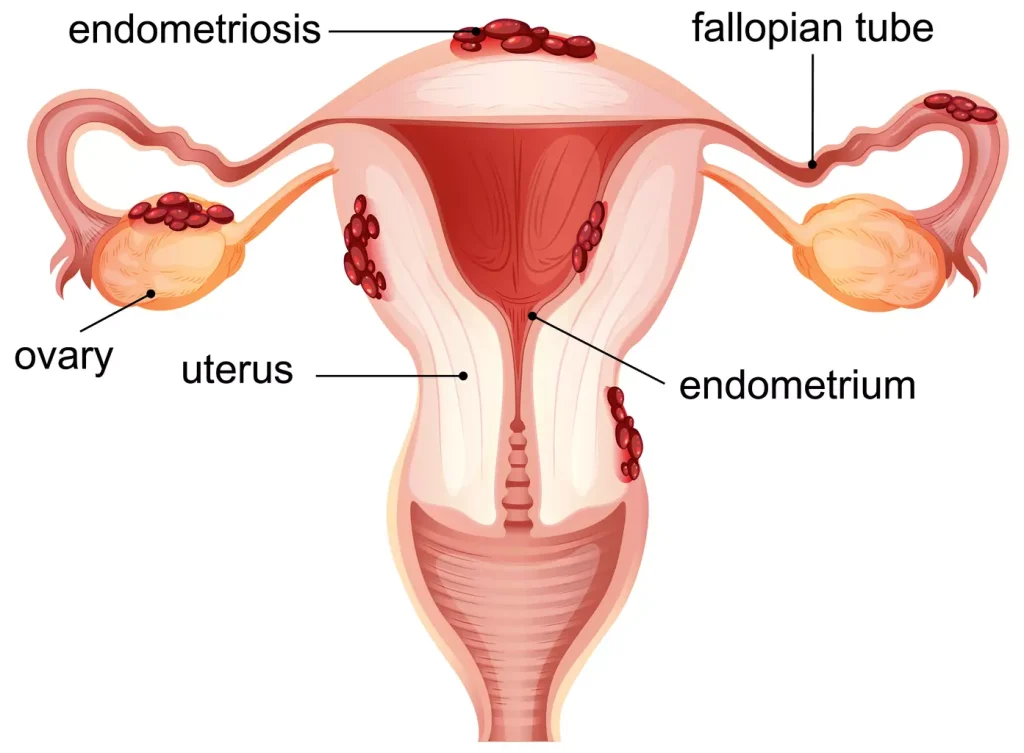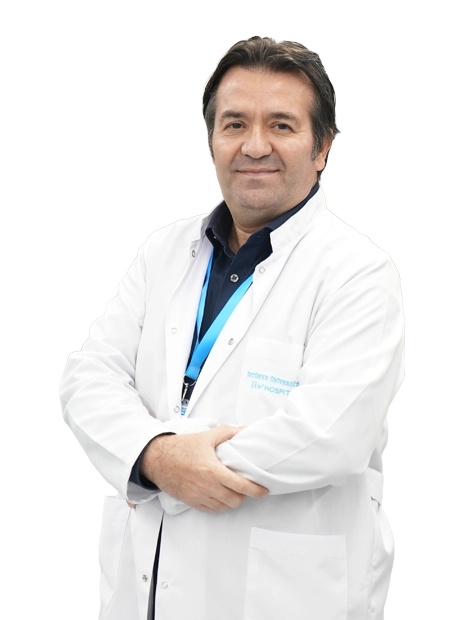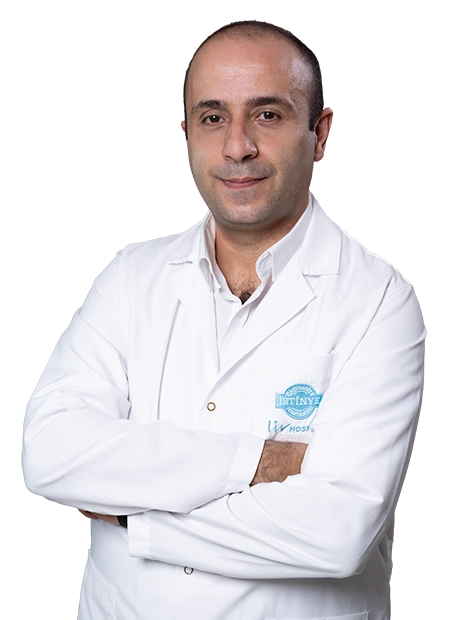
Cervical cancer is a big health problem worldwide. More people are looking into holistic approaches to help with traditional treatments. At Liv Hospital, we focus on treating the whole person, not just the disease.
Recent studies show that some natural compounds might fight cancer. Things like curcumin, EGCG, and apigenin look promising in early studies. They could lead to new ways to treat cervical cancer.
When we look at alternative medicine, we need to be careful and open-minded. We want to share some alternative remedies that might help with traditional cervical cancer treatments.
Key Takeaways
- Exploring holistic approaches to cervical cancer care
- The role of natural compounds in anticancer activity
- Overview of alternative remedies for cervical cancer
- Importance of complementing conventional care with alternative therapies
- Research-backed natural compounds showing promise
Cervical Cancer: Understanding the Disease and Treatment Landscape

Cervical cancer is a major health issue for women worldwide, ranking as the fourth most common cancer. It’s important to know about its causes and treatments to see how alternative remedies help.
Global Statistics and Impact
Cervical cancer affects many, with about 660,000 new cases and 350,000 deaths each year. It hits hardest in low- and middle-income countries.
Key statistics include:
- 660,000 new cases annually worldwide
- 350,000 deaths per year
- Higher incidence in low- and middle-income countries
HPV Infection as the Primary Cause
High-risk Human Papillomavirus (HPV) strains cause most cervical cancers. But, most HPV infections clear up without causing cancer.
The role of HPV in cervical carcinogenesis is complex, involving the virus’s ability to integrate into the host genome and disrupt normal cellular processes.
Conventional Treatment Options
Treatment for cervical cancer varies based on the disease’s stage. It can include surgery, radiation, and chemotherapy, often together.
For early-stage cancer, surgery might be enough. But, more advanced cases need a mix of treatments. New treatments like targeted therapies and immunotherapies are being explored.
“The standard treatment for cervical cancer has evolved, with a focus on improving outcomes and reducing morbidity.”
The Science Behind Holistic Treatment for Cervical Cancer

Understanding the science behind holistic treatments can open new doors for cervical cancer care. It’s key to know what we mean by complementary and alternative medicine.
Defining Complementary and Alternative Medicine
Complementary and alternative medicine (CAM) includes many practices and products not part of regular medicine. Complementary medicine is used with standard treatments. Alternative medicine is used instead of regular treatments. There’s a growing interest in CAM for cervical cancer treatment. We need to check if it’s safe and works well.
“The use of complementary and alternative therapies in cancer care is becoming more important,” a study says. This mix can make treatments better and improve life quality.
Research on Natural Compounds in Cancer Care
Research has found natural compounds that might fight cancer. For example, studies show some natural compounds can stop cancer cells from growing and dying. There’s more evidence that natural compounds can help in cancer care.
The Importance of an Integrative Approach
An integrative approach mixes regular cancer treatments with proven complementary therapies. This mix can help with symptoms, lessen side effects, and better patient results. Adding therapies like meditation, yoga, and nutrition counseling can give cervical cancer patients better care.
“Integrative oncology is not about replacing conventional treatments but about complementing them with evidence-based therapies to improve patient outcomes.” This view shows how an integrative approach can make cervical cancer care better.
Treatment 1: Curcumin and Turmeric Therapy
Research shows that curcumin and turmeric therapy can help fight cancer, including cervical cancer. Curcumin, found in turmeric, has been studied for its health benefits.
Anticancer Mechanisms of Curcumin
Curcumin fights cancer in several ways. It changes how cells grow and can stop tumors from growing. Its ability to reduce inflammation is also key, as inflammation can lead to cancer.
Curcumin also makes cancer cells die, which is important for fighting cancer. It stops new blood vessels from forming, which tumors need to grow.
Clinical Research and Evidence
Research on curcumin in cervical cancer is growing. Early studies show it might help cancer treatments work better and have fewer side effects.
More studies are needed to fully understand curcumin’s role in cancer care. These studies will help confirm its benefits.
Recommended Forms and Dosages
Curcumin comes in different forms, like supplements and extracts. Taking it with black pepper can make it easier for your body to use.
People usually take 500 mg to 2,000 mg of curcumin each day. But, the best amount for cervical cancer treatment is not known yet. Always talk to a doctor before taking curcumin to make sure it’s safe and right for you.
Treatment 2: Green Tea and EGCG Supplementation
EGCG in green tea might help fight cervical cancer. Green tea is full of antioxidants, making it interesting for cancer research. It could play a role in treating cervical cancer.
Mechanisms of Action Against Cervical Cancer
EGCG is the most active part of green tea. Studies show it can make cervical cancer cells die and stop growing. “EGCG has been shown to have anti-cancer properties by affecting various pathways involved in cancer cell growth and survival,” as noted in various studies. This makes it a possible help for cervical cancer.
EGCG works by changing genes that control cell growth and death. It also fights oxidative stress, which can cause cancer to grow.
Research Findings and Effectiveness
Many studies have looked into green tea and EGCG for cervical cancer. A review shows EGCG can make treatments work better and have fewer side effects. For example, a study on Liv Hospital’s website talks about green tea’s anti-cancer effects.
Research says green tea might help when used with standard treatments. But, we need more studies to know the best amount and how long to take it for cervical cancer patients.
Optimal Consumption Methods
Green tea comes in many forms, like brewed tea, capsules, and extracts. The way you take it can change how much EGCG you get. Brewed tea is natural, but supplements might give you more EGCG.
If you’re thinking about taking green tea supplements, talk to a doctor first. They can help you pick the right type and amount. Remember, supplements can interact with other medicines or cause side effects, so be careful.
Treatment 3: Medicinal Mushrooms for Immune Support
Medicinal mushrooms like reishi, turkey tail, and maitake are studied for boosting the immune system. They are part of a natural approach to fight cervical cancer. Let’s see how these mushrooms can help support the immune system in cervical cancer patients.
Reishi, Turkey Tail, and Maitake Benefits
Reishi, turkey tail, and maitake mushrooms are known for their immune-boosting effects. Reishi mushroom helps the body resist stress and promotes well-being. Turkey tail mushroom has polysaccharide-K (PSK) that boosts the immune system. Maitake mushroom may help the body fight cancer cells better.
These mushrooms are full of beta-glucans, which boost the immune system. This can help the body fight cancer cells more effectively.
Mechanisms of Action Against Cancer
Medicinal mushrooms may fight cancer by improving the immune system. They help activate immune cells like macrophages and T cells. These cells are key in fighting cancer.
- Reishi mushroom can cause cancer cells to die.
- Turkey tail mushroom’s PSK can improve survival rates in some cancers.
- Maitake mushroom may slow down tumor growth and spread.
Preparation and Supplementation Guidelines
Medicinal mushrooms come in capsules, powders, and teas. The way you take them can affect how well your body absorbs their benefits.
| Mushroom Type | Common Preparations | Recommended Dosage |
|---|---|---|
| Reishi | Capsules, Tea | 1-2 grams per day |
| Turkey Tail | Extracts, Capsules | 1-3 grams per day |
| Maitake | Powder, Capsules | 0.5-1 gram per day |
Always talk to a healthcare professional before adding new supplements, like these mushrooms, to your treatment plan.
Treatment 4: Mind-Body Therapies and Stress Reduction
Mind-body therapies play a big role in managing stress for cervical cancer patients. They are part of a complete treatment plan. These therapies give patients tools to deal with their diagnosis and treatment.
Meditation and Guided Imagery
Meditation and guided imagery help patients relax deeply. They reduce stress and anxiety. These methods are great for cervical cancer patients going through treatment.
Benefits of Meditation and Guided Imagery:
- Reduced stress and anxiety
- Improved sleep quality
- Enhanced overall well-being
- Better coping mechanisms for dealing with treatment side effects
Yoga Practices for Cancer Patients
Yoga combines physical movement, deep breathing, and meditation. It offers a complete way to improve physical and mental health. For cervical cancer patients, yoga helps manage side effects and improves life quality.
Benefits of Yoga for Cervical Cancer Patients:
| Benefit | Description |
|---|---|
| Improved flexibility and strength | Helps in recovering from surgery and managing treatment side effects |
| Reduced stress and anxiety | Promotes relaxation and mental well-being |
| Enhanced sleep quality | Aids in better rest and recovery |
Impact on Treatment Outcomes and Quality of Life
Mind-body therapies like meditation, guided imagery, and yoga greatly impact cervical cancer patients. They reduce stress and improve well-being. These therapies work well with traditional treatments.
Key Outcomes:
- Improved treatment tolerance
- Enhanced quality of life
- Better management of treatment side effects
- Increased sense of control and empowerment
Treatment 5: Traditional Chinese Medicine Approaches
Cervical cancer patients might find Traditional Chinese Medicine helpful. It can manage symptoms and improve life quality. We’ll look at how acupuncture and Chinese herbal formulas support cervical cancer care.
Acupuncture for Symptom Management
Acupuncture is a key part of Traditional Chinese Medicine. It involves putting thin needles into specific body points to balance and heal. Studies show acupuncture can ease symptoms like pain, nausea, and fatigue from cervical cancer and its treatment.
A study in the Molecular Cancer journal shows acupuncture’s benefits in cancer care. It boosts the body’s healing and reduces treatment side effects. Always see a licensed acupuncturist experienced with cancer patients for safe treatment.
Chinese Herbal Formulations
Chinese herbal formulas are vital in cervical cancer care. They’re made from herbs tailored to each patient’s needs. Some herbs may fight cancer or lessen treatment side effects.
For instance, some herbs can strengthen the immune system, reduce inflammation, or ease nausea and fatigue. But, it’s key to talk to a qualified practitioner. They ensure the herbs are safe and work well, avoiding harmful interactions with other treatments.
Finding Qualified Practitioners
When looking for Traditional Chinese Medicine for cervical cancer, finding a good practitioner is critical. Look for licensed practitioners with cancer experience. Always tell your oncologist about any complementary therapies you’re using.
A skilled practitioner will assess you and create a treatment plan that fits with your cancer care. Adding Traditional Chinese Medicine to your care can help manage symptoms and enhance overall well-being.
Treatment 6: Nutritional Therapy and Anti-Cancer Diets
Nutrition plays a big role in cancer care. Certain diets can help with cervical cancer treatment. Nutritional therapy uses diet and supplements to manage the disease and its treatment.
Plant-Based Eating and Apigenin-Rich Foods
A plant-based diet includes fruits, vegetables, and whole grains. These foods are full of nutrients and antioxidants. Apigenin, found in parsley, celery, and chamomile tea, may fight cancer. Adding these foods to your diet could help manage cervical cancer.
Some key apigenin-rich foods include:
- Parsley
- Celery
- Chamomile tea
- Onions
- Oranges
Antioxidant-Rich Foods and Cancer Prevention
Antioxidants protect cells from damage by free radicals, which can lead to cancer. Foods like berries, leafy greens, and nuts are full of antioxidants. They can be good for a cervical cancer diet.
Berries, like blueberries, strawberries, and raspberries, are packed with antioxidants. Eating a variety of antioxidant-rich foods can boost health and help with cancer treatment.
Practical Dietary Implementation Strategies
Starting nutritional therapy needs careful planning. Here are some tips:
- See a registered dietitian or nutritionist who knows about oncology to make a diet plan just for you.
- Eat whole, unprocessed foods like veggies, fruits, whole grains, and lean proteins.
- Drink lots of water all day.
- Avoid foods that can cause inflammation or oxidative stress, like processed meats and sugary snacks.
By following these dietary tips, patients can improve their treatment results and quality of life.
Treatment 7: Detoxification and Lifestyle Modifications
Exploring alternative treatments for cervical cancer, detoxification and lifestyle changes are key. They help the body heal naturally and lower cancer risk.
Reducing Environmental Toxins
Environmental toxins can harm our health, making cancer worse. It’s important to cut down on these toxins for better health.
- Avoiding plastics and choosing glass or stainless steel containers
- Using non-toxic household cleaning products
- Filtering drinking water to remove contaminants
Less exposure to pollutants means less toxins in our bodies. This can improve our health and well-being.
Benefits of Exercise and Physical Activity
Exercise is vital for health during cervical cancer treatment. It helps manage symptoms, boosts mood, and improves life quality.
| Exercise Type | Benefits |
|---|---|
| Aerobic Exercise | Improves cardiovascular health, reduces fatigue |
| Yoga | Enhances flexibility, reduces stress and anxiety |
| Resistance Training | Builds muscle strength, supports bone health |
Always talk to doctors before starting new exercises, even during treatment.
Sleep Optimization for Healing
Good sleep is essential for healing. It boosts the immune system, lowers stress, and improves well-being.
Sleep hygiene practices include:
- Maintaining a consistent sleep schedule
- Creating a relaxing bedtime routine
- Avoiding screens before bedtime
By focusing on sleep and a good sleep environment, cervical cancer patients can see better treatment results and life quality.
Conclusion: Creating an Integrated Approach to Cervical Cancer Care
An integrated approach to cervical cancer care mixes the best of traditional treatments with holistic therapies. This way, patients can get better results and live better lives. It’s all about combining natural remedies and lifestyle changes.
We’ve talked about many holistic treatments. These include curcumin and turmeric, green tea, medicinal mushrooms, and more. These options can work alongside traditional treatments to make a complete care plan.
Studies show that this approach can help manage symptoms and reduce side effects. It also boosts overall well-being. By working with doctors, patients can create a plan that’s just right for them.
In the end, an integrated approach to cervical cancer care is a hopeful path. It balances traditional medicine with holistic treatments. This can lead to better outcomes and a better quality of life for patients.
What is the role of complementary and alternative medicine in cervical cancer treatment?
Complementary and alternative medicine (CAM) offers extra options for managing symptoms and improving life quality. It can also help treatment work better. We use CAM to give a more complete care approach.
How does curcumin help in treating cervical cancer?
Curcumin, from turmeric, fights cancer by stopping cell growth and causing cells to die. It also stops new blood vessels from forming. We suggest adding curcumin to treatment plans.
Can green tea and EGCG supplementation help in cervical cancer treatment?
Green tea and EGCG can fight cancer by stopping cell growth and causing cells to die. They also make treatments work better. We recommend green tea or EGCG supplements.
What are the benefits of medicinal mushrooms in cervical cancer care?
Medicinal mushrooms boost the immune system, helping fight cancer. They support the body’s natural defense. This improves overall health.
How can mind-body therapies help cervical cancer patients?
Mind-body therapies like meditation and yoga help manage stress and improve mood. They enhance life quality and treatment results. They also boost overall well-being.
What is the role of traditional Chinese medicine in cervical cancer care?
Traditional Chinese medicine (TCM) helps manage symptoms and improves life quality. It works with conventional treatments. TCM includes acupuncture and herbal remedies.
How can nutritional therapy and anti-cancer diets support cervical cancer treatment?
Nutritional therapy and anti-cancer diets provide essential nutrients and antioxidants. A diet rich in fruits and vegetables helps treatment outcomes. It also boosts overall health.
What lifestyle modifications can help cervical cancer patients?
Changes like reducing toxins and exercising improve health and well-being. They also help treatment work better. These changes lower cancer recurrence risk.
Are there any natural remedies that can cure cervical cancer?
No natural remedy can cure cervical cancer alone. But, some natural treatments can help conventional treatments work better. We suggest a mix of both.
How can I find qualified practitioners for alternative therapies?
Ask your doctor for referrals or check certifications. Research the practitioner’s experience with cervical cancer. This ensures you get the best care.
References
• World Health Organization. (n.d.). Cervical cancer. https://www.who.int/news-room/fact-sheets/detail/cervical-cancer
• Zhang, L., Jiang, Y., & Chen, Z. (2023). Curcumin, EGCG and apigenin in cervical cancer. PubMed Central. https://pmc.ncbi.nlm.nih.gov/articles/PMC12259677/
• Zhou, J., & Wang, Y. (2022). Insights in experimental pharmacology and drug discovery. Frontiers in Pharmacology. https://www.frontiersin.org/journals/pharmacology/articles/10.3389/fphar.2022.899208/full
• National Cancer Institute. (2025). Cervical Cancer Treatment (PDQ®). https://www.cancer.gov/types/cervical/patient/cervical-treatment-pdq
• American Cancer Society. (2025). Key statistics for cervical cancer. https://www.cancer.org/cancer/cervical-cancer/about/key-statistics.html



































